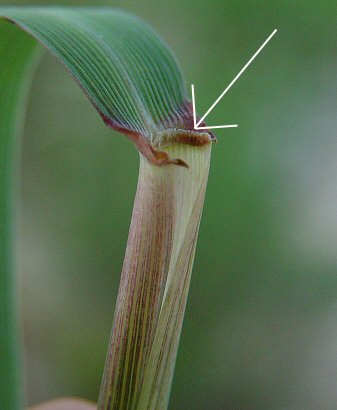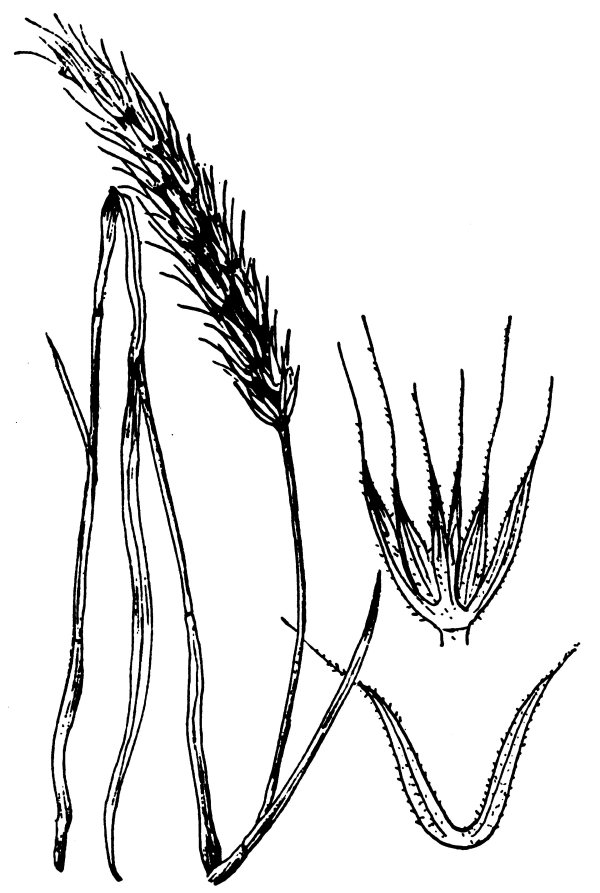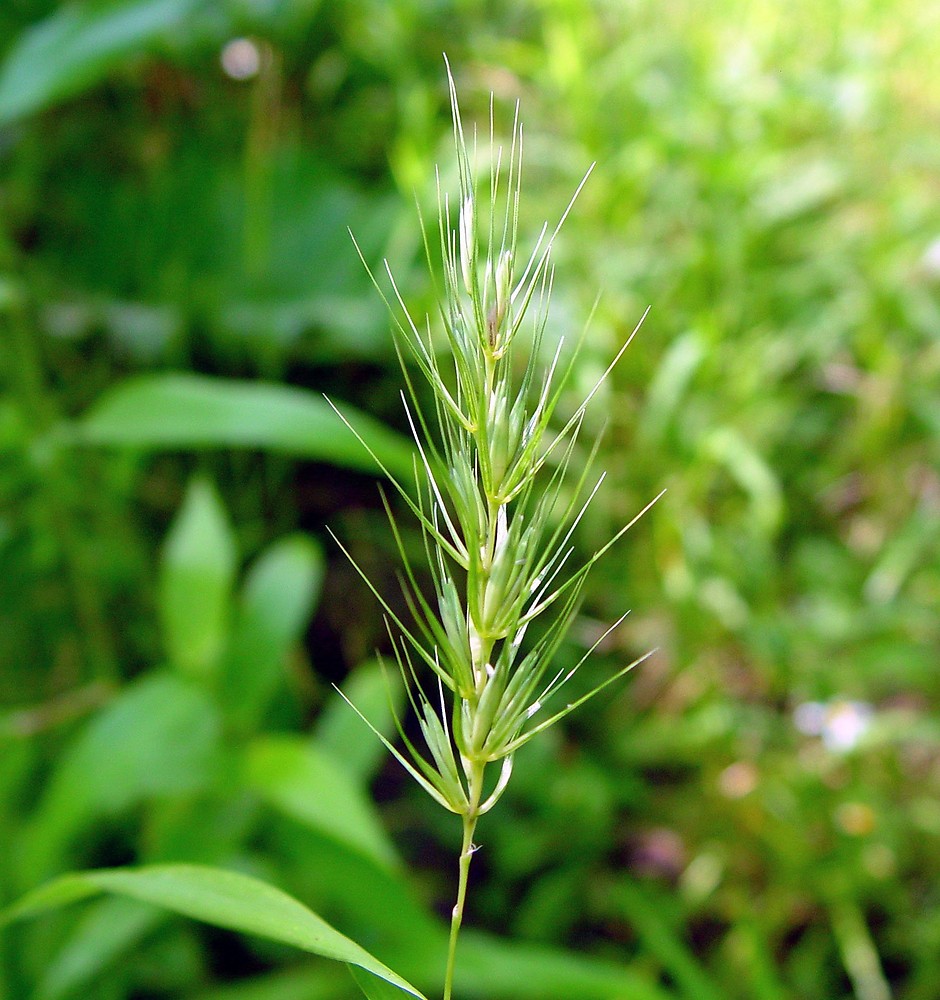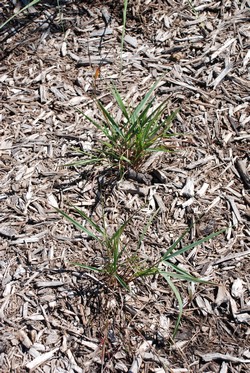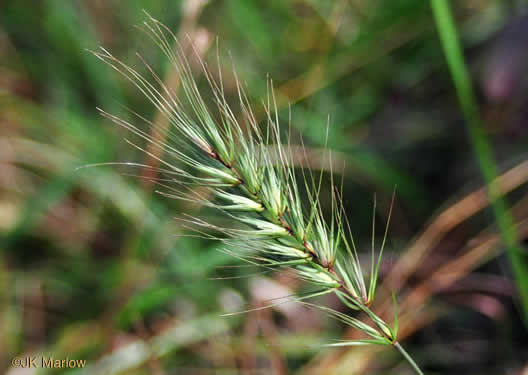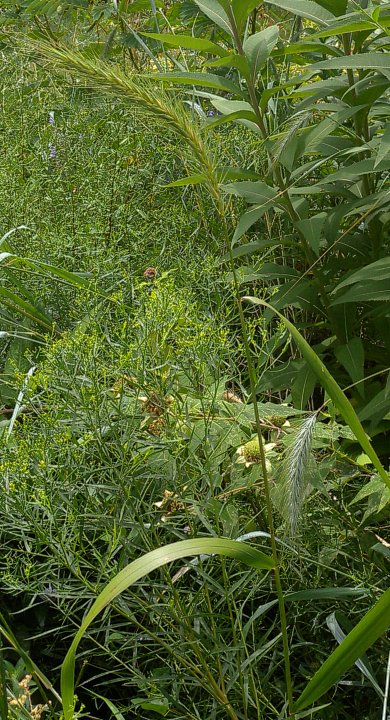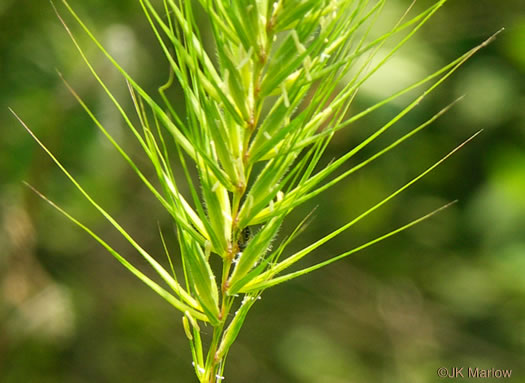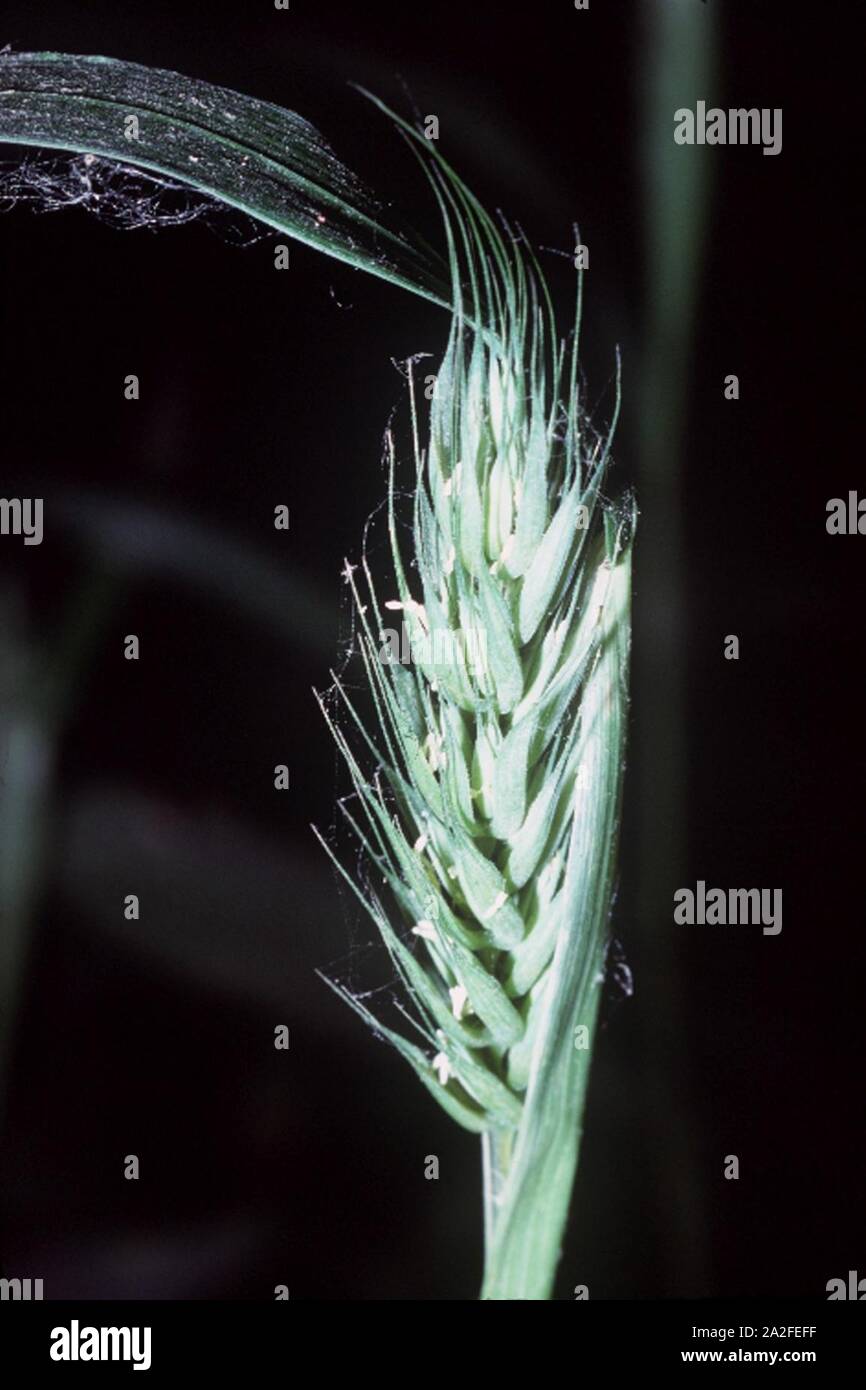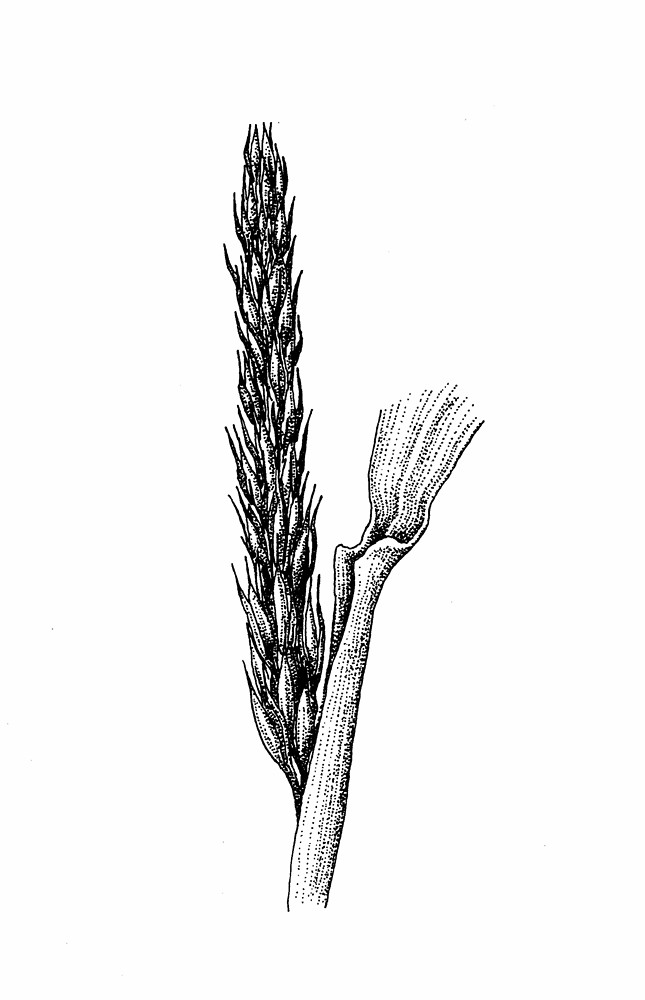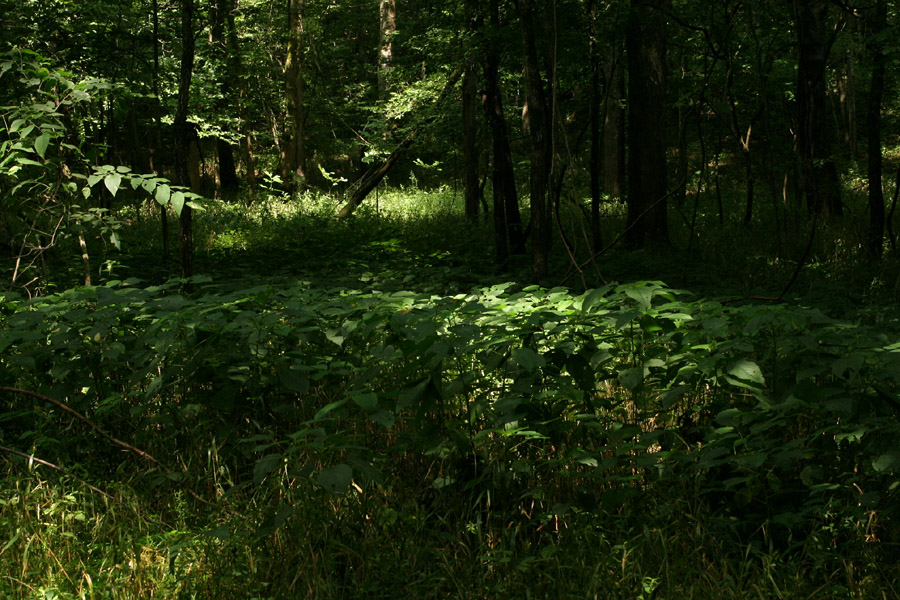Elymus Virginicus Awn

There are 10 elymus species in minnesota not counting vars subspecies.
Elymus virginicus awn. It is similar to canada wildrye elymus canadensis in appearance but is typically shorter in height with shorter awns on the seed head. Virginicus virginia wildrye. Virginia wild rye can be distinguished from other elymus spp. Rye elymus riparius is perhaps most similar in appearance to silky wild rye elymus villosus because both of these grasses produce nodding inflorescences that are more slender than those of canada wild rye elymus canadensis.
Virginia wild rye is one of the most common in the state present in all but a few counties. The plants database includes the following 2 subspecies of elymus virginicus. Virginicus has most lemmas awned longer than 5 mm. The seed heads are more erect than those of canada wildrye which typically bow or droop philips petroleum company 1963.
Elymus virginicus is a clump forming cool season perennial grass. Glabriflorus vasey ex dewey bush ct ma ri. Elymus curvatus piper is known from near lake superior in minnesota ontario and wisconsin and could occur in the western upper peninsula. Wild rye grasses by its erect spikelets with straight awns the lack of significant hair on its foliage and the width of its glumes about 1 mm.
Virginicus with lemma awns mostly 3 15 mm long and leaf blades flat or involute usually laxly spreading. Click below on a thumbnail map or name for subspecies profiles. Halophilus virginia wildrye elymus virginicus var. Native introduced native and introduced.
Glumes and lemmas pubescent 3a. The tufted foliage is narrow and evergreen or semi evergreen. Elymus virginicus commonly called virginia wild rye is a cool season perennial bunch grass which typically grows in a clump to 2 4 tall. Blades have a green or silver blue color and a waxy sheen.
Virginicus but has lemmas awnless or with vestigial awns less than 4 mm long whereas e. Dry mesic deciduous forests usually occurring on hills ridges including trap rock in shallow soils associated with quercus and or carya. Bristly wheat like spikey flower with hair like awns form in late spring. Lemma awns absent or up to 3 mm long and leaf blades often somewhat involute usually ascending vs.





